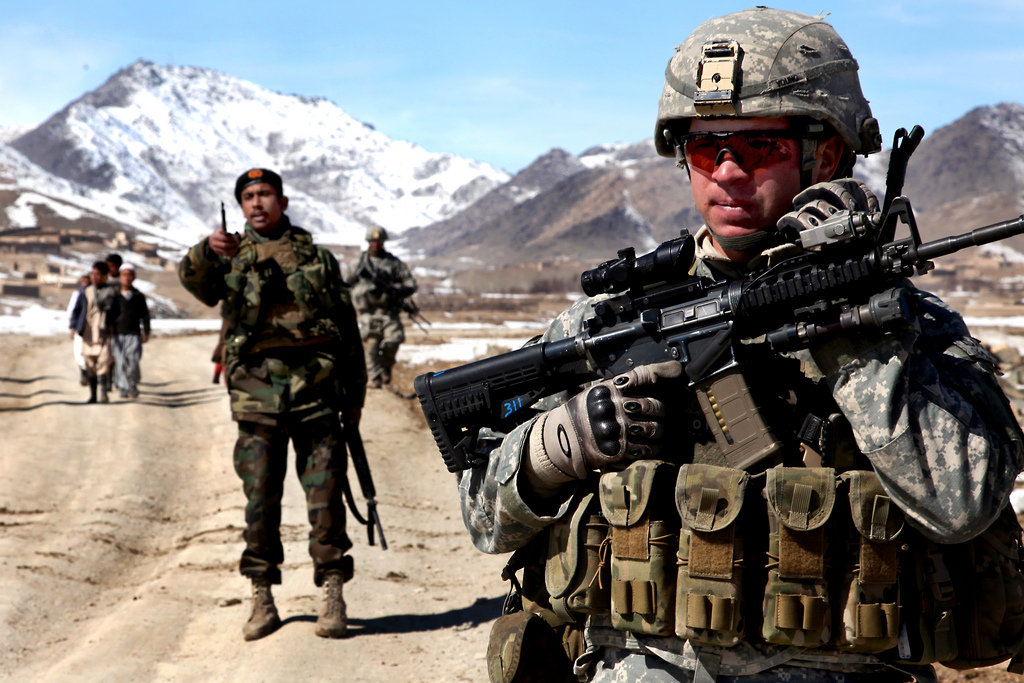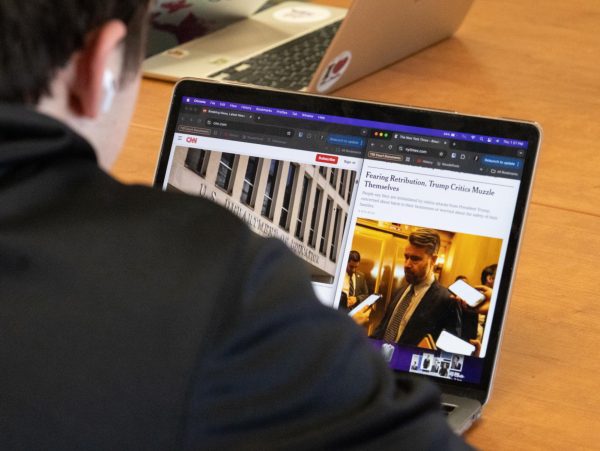Why America can’t backdown
The reason why America must keep on fighting the forever war
Photo: U.S. Army
A U.S. Army Soldier from the A Company, 1-503rd Battalion, 173rd Airborne Brigade Combat Team, conducts a patrol with a platoon of Afghan national army soldiers to check on conditions in the village of Yawez, Wardak province, Afghanistan, Feb. 17, 2010. Partnership between the U.S. Army and the Afghan national army is proving to be a valuable tool in bringing security to the area.
Sixteen years. That is how long the War on Terror has been raging over seas and in the hearts of every American. To put that in perspective, America started its ongoing War on Terror before anyone in the sophomore class was born, and soldiers fighting in Afghanistan today may have been toddlers during 9/11.
Since 2001, the United States has lost 7,049 soldiers, according to the Defense Casualty Analysis System, and an inconceivable amount of young men and women have come back physically and psychologically scarred from fighting in America’s longest war. This country has sacrificed so much, and in the eyes of many Americans, these wars have given us nothing but pain and hardship.
So why is it that America always seems to send its sons and daughters to go fight the rest of the world’s battles?
Some, including President Trump, have suggested our allies should pay protection money. After all the U.S. gives 16.8 billion dollars to its allies for security according to the Washington Post. That is on top of the nearly 600 billion dollar U.S. defense budget, according to Bloomberg, that runs America’s military which operates all over the world.
But there is a compelling reason for the U.S. to play the world’s police man. Time and time again, the U.S. has shown its willingness to use its power to protect those who are defenseless. The U.S. intervened in Somalia during Operation Restore Hope to make sure food shipments were getting to the starving people of the nation and not the warring factions. According to the U.S. Institute of Peace, the U.S. and U.N. intervention saved hundreds of thousands of lives. The U.S. mobilized NATO in opposition to Serbian attacks on civilians in Kosovo, which the U.N. Secretary General described as ethnic cleansing.
But not all American interventions have been truly justified. That has become clear when we look at wars like Vietnam and Iraq, which were fought almost solely for strategic and political reasons. Hopefully, these are simply mistakes which we can look to for guidance in what not to do.
As a country our American ideals shine the brightest when we stand up for the voiceless, whether that be through military or diplomatic power. We lose great men and women every day fighting on behalf of others, but we have to ask ourselves what we stand to lose by standing by while the human rights of the world’s oppressed peoples are violated.
So much of the American spirit is founded on standing up to tyranny. We have enshrined our basic human rights into our constitution. Should the rights we take for granted only reside within the borders of the U.S.? Do our great riches and power come with great responsibility? These are questions the new generation of Americans will have to answer as they begin fighting these wars. They will have to decide if America will continue its run as a moral superpower or whether we revert to isolationism.
Hopefully they will be brave enough stand up for the voiceless and maybe they may find inspiration in words of President John F. Kennedy who said “The rights of every man are diminished when the rights of one man are threatened.”












